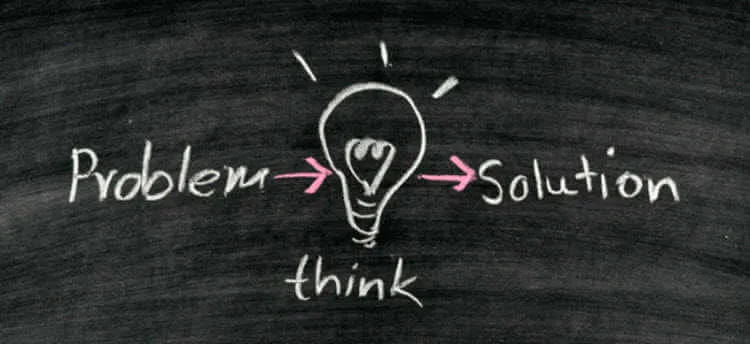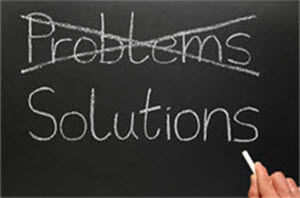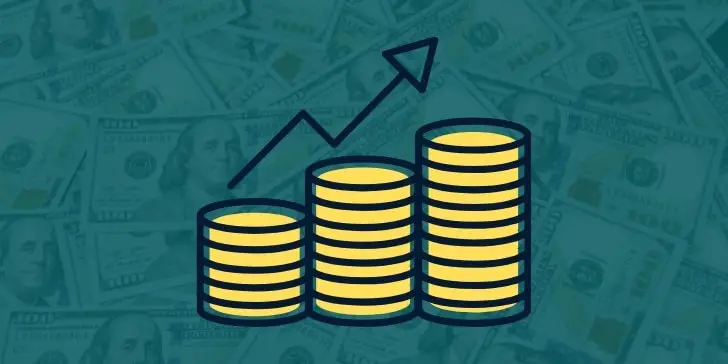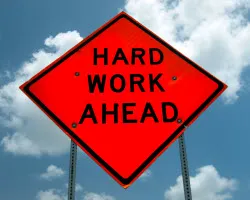
As a person who suffers from chronic depression, I am familiar with the mindset that goes along with it…. First, you feel depressed and unable to function. Then you chastise yourself for not being able to “snap out of it.” And the more you focus on why you feel bad, and why you can’t just feel better, the worse you feel.
Traders can go through a similar psychological process in their practice if they are not careful. Many trading sites advise you to identify your problems, discuss them, set goals to overcome them, and then work on them. And by focusing on their problems, traders may become mired in the same downward spiral that engulfs so many depressives.
The more you think about your problems, the more you become problem-focused. You focus on your deficits and feel deficient. You work your a** off at self-improvement, only to find that you are actually getting worse.
Brett Steenbarger, famous trading coach, calls this process “problem-based,” and maintains that there is a better way, which is a “solution-based” process.
Instead of focusing on what you are doing wrong, you change your entire mindset, and set your mind to what you want to do right, what you want to accomplish. You identify actions and goals that you want to reach, and then you outline the steps you need to take in order to reach those goals.
You may also find that you are already working towards those goals, even if in a very small way. Identifying when you are doing things right, instead of when you are doing them wrong, is an incredibly empowering and uplifting feeling.
For example, you may be looking to other traders for your entry or exit signals, where to place your stops, etc. Instead, review your own trading records, and look for the times when you had successful trades, those which not only ended in a gain but also adhered to your trading methodology and plan.
(Winning trades that did not follow your trading plan are not successful trades, they are only lucky. You should not consider them when listing your accomplishments.)
Not only should you record your winning trades when you successfully followed your trading plan, but you should also closely consider those trades that adhered to your methodology, but that turned out to not end in a gain. As long as those trades ended by reaching your stop loss or other predetermined exit point, those should be considered successful trades. True, they did not end in a gain for your portfolio balance, but they achieved something nonetheless.
When reviewing the successful trades, you may perhaps see a pattern that can be repeated. You can develop a solution-focused approach to trading, based on the things that you are already doing correctly.

Solution-focused processes work in therapy settings because they do not focus on how the patient got to be where he is today, reviewing childhood traumas or feelings of inadequacy, years of past therapy, and other largely non-constructive discussions. No, solution-based processes focus on where the patient is NOW, and where he wants to go, and how to get there.
It does not matter if your depression is caused by something that happened when you were a child or a recent traumatic incident. What matters is how you are going to move forward from where you are NOW.
The psychology of trading can be directly correlated. It doesn’t matter if you have a history of jumping from trading method to trading method, never sticking with one long enough to find out if it really works. It doesn’t matter if you tend to always trade too small until you get confident, then you switch to trading too large a position.
What matters is what you are going to do now.
Mr. Steenbarger recommends a simple trading journal to help traders work out this new thought process. Each day, write down one thing that you did wrong, that you don’t want to repeat. And write down one thing you did right, that you want to use as a foundation for building your new process. In this way, you are acknowledging your weaknesses, but you are focusing on your strengths and working to improve them.
Realize that the best performers in any field have weaknesses. The key is to find a way, not necessarily to eliminate them, but to work around them and not let them slow you down.
As Mr. Steenbarger concludes, “Greatness is more than the relative absence of problems; it’s the purposeful cultivation of one’s most distinctive capabilities.”



